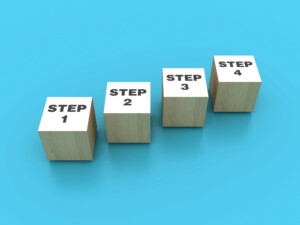How Do I Fill Out a Bid Table RFP? Step-by-Step for Cleaning Pros

How Do I Fill Out a Bid Table RFP? A Step-by-Step Guide for Cleaning Companies
When a Request for Proposal (RFP) lands in your inbox, it can feel like an opportunity—and a challenge. Especially when you reach the bid table section, knowing how to fill out a bid table RFP correctly can mean the difference between winning the job or losing it to a better-prepared competitor.
In this blog post, we’ll walk you through what a bid table is, what it typically includes, and how to complete one efficiently and professionally. And if you ever need expert help, don’t forget: ISSA Consulting Services is here to support cleaning and facility professionals through every step of the bidding process.
What Is a Bid Table in an RFP?
A bid table is a standardized spreadsheet or section within an RFP (Request for Proposal) that asks vendors to provide pricing for specific services, tasks, or deliverables.
In the cleaning industry, it typically includes:
- Labor rates (per hour or per square foot)
- Scope of services (e.g., daily cleaning, carpet care, window washing)
- Frequency (e.g., 3x/week, nightly, monthly deep cleans)
- Square footage or unit pricing
- Optional or add-on services
- Equipment and supply costs (sometimes)
It’s not just about numbers—it’s about precision. Misplaced entries or misinterpreted requirements can cost you the contract.

Step-by-Step: How to Fill Out a Bid Table RFP
-
Read the Entire RFP First
Before you even touch the bid table, read the full RFP carefully. Understand:
- The client’s goals
- Scope of work
- Locations
- Service expectations
- Evaluation criteria
Tip: Highlight or note down any pricing instructions or bid submission formats. Many RFPs disqualify vendors for failing to follow directions.
-
Download and Save the Bid Table Template
If the bid table is provided as an Excel sheet or PDF form, save a working copy to your device. Ensure you:
- Keep the format intact
- Use the requested currency or units
- Don’t add or remove columns unless instructed
-
Clarify Line Items
Make sure you fully understand each row in the table. If it says “strip and wax VCT,” confirm:
- Which buildings or floors it applies to
- What square footage is involved
- How often the service is required
Not sure? Ask questions during the RFP’s Q&A period. This is standard and expected.
-
Gather Your Data
You’ll need:
- Your team’s labor rates (including taxes, benefits, and overhead)
- Production rates (how fast tasks are completed per square foot)
- Equipment costs
- Supply and chemical costs
- Travel time or special site factors
Use industry benchmarks for labor time and productivity, or consult with professionals through ISSA Consulting Services if you’re unsure how your data compares.
-
Calculate Costs and Enter Pricing
Fill in each row based on your cost estimates and markup strategy. Ensure your math is solid.
- Use formulas in Excel to double-check totals
- Be consistent with rounding (e.g., two decimal places)
- Note any assumptions in the comments column (if available)
-
Double-Check for Completeness and Accuracy
This part is crucial. Before submitting:
- Verify all required cells are filled
- Check formulas and totals
- Review for typos or extra digits (e.g., $10,000 instead of $1,000)
Have someone on your team peer-review it—or better yet, work with a third-party expert who understands RFP pricing structures.
Common Mistakes to Avoid
Filling out a bid table might sound straightforward, but even seasoned professionals make these errors:
- Missing sections (e.g., forgetting optional services)
- Incorrect units (pricing per square foot when the client asked for monthly)
- Omitting add-on costs (e.g., parking fees, hazardous waste disposal)
- Lack of backup documentation (e.g., no explanation for cost variations)
A strong bid is not just the lowest—it’s the clearest and most complete.
How to Stand Out with Your Bid
Pricing is just one part of your proposal. To make your bid table more impactful:
- Include a cover letter summarizing your pricing strategy
- Add an executive summary showing value, not just cost
- Reference your quality assurance and training systems
- Highlight green cleaning or certifications if relevant
Also consider referencing your ability to meet performance metrics like ISSA’s CIMS Standards, which many buyers increasingly value.
Final Thoughts: Get Help When You Need It
Filling out a bid table RFP is not just a spreadsheet exercise—it’s a strategic move for your business. Whether you’re new to bidding or looking to improve your win rate, having expert insight can give you an edge.
If you’re ready to bid smarter and stronger, reach out to ISSA Consulting Services. Their team can help you build confidence, avoid costly errors, and put forward a proposal that wins.
Internal and External Resources to Help You:
- Cleaning Business Consulting — Get expert support on pricing and proposal strategy.
- CIMS Certification — Learn how CIMS standards align with client expectations.
- ISSA Training Programs — Boost your team’s skills to deliver on your proposal promises.
Credible External Resources:
- U.S. General Services Administration (GSA) – Insights into federal bidding processes
- APPA (Leadership in Educational Facilities) – Best practices in custodial RFPs for institutions
















